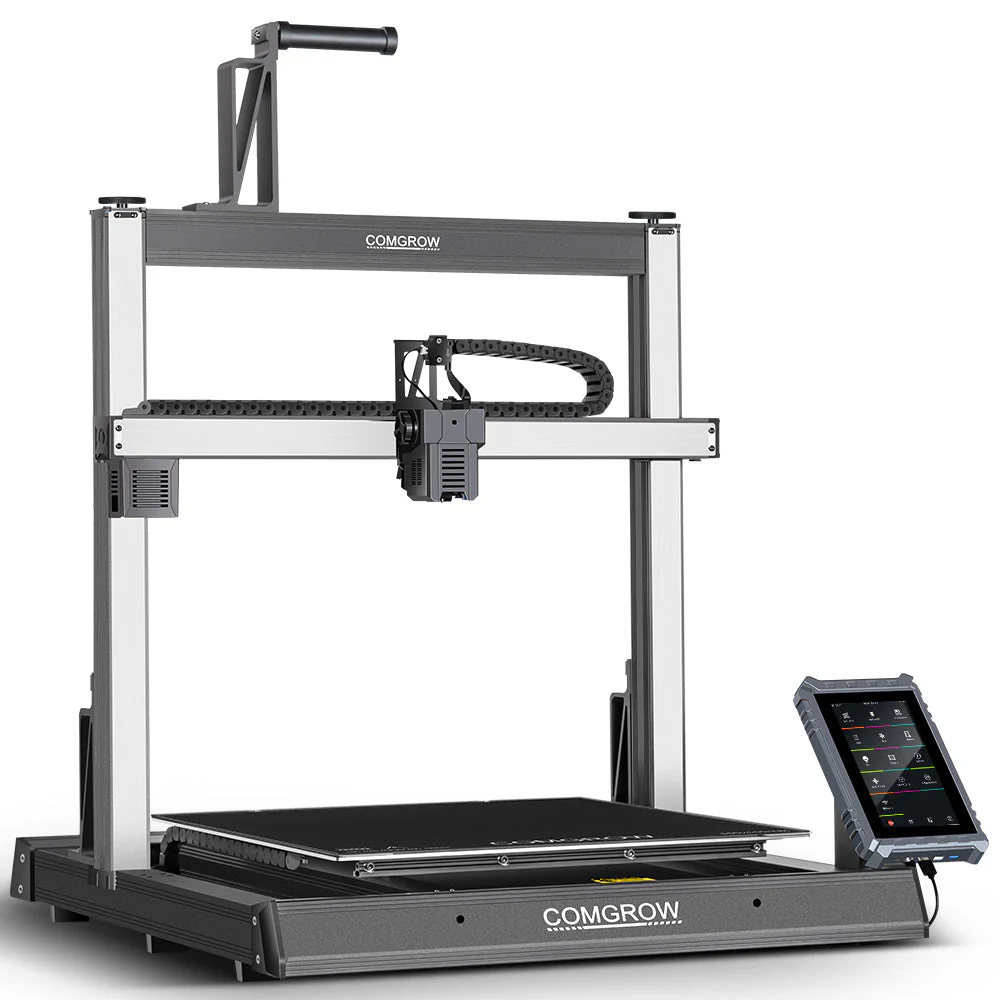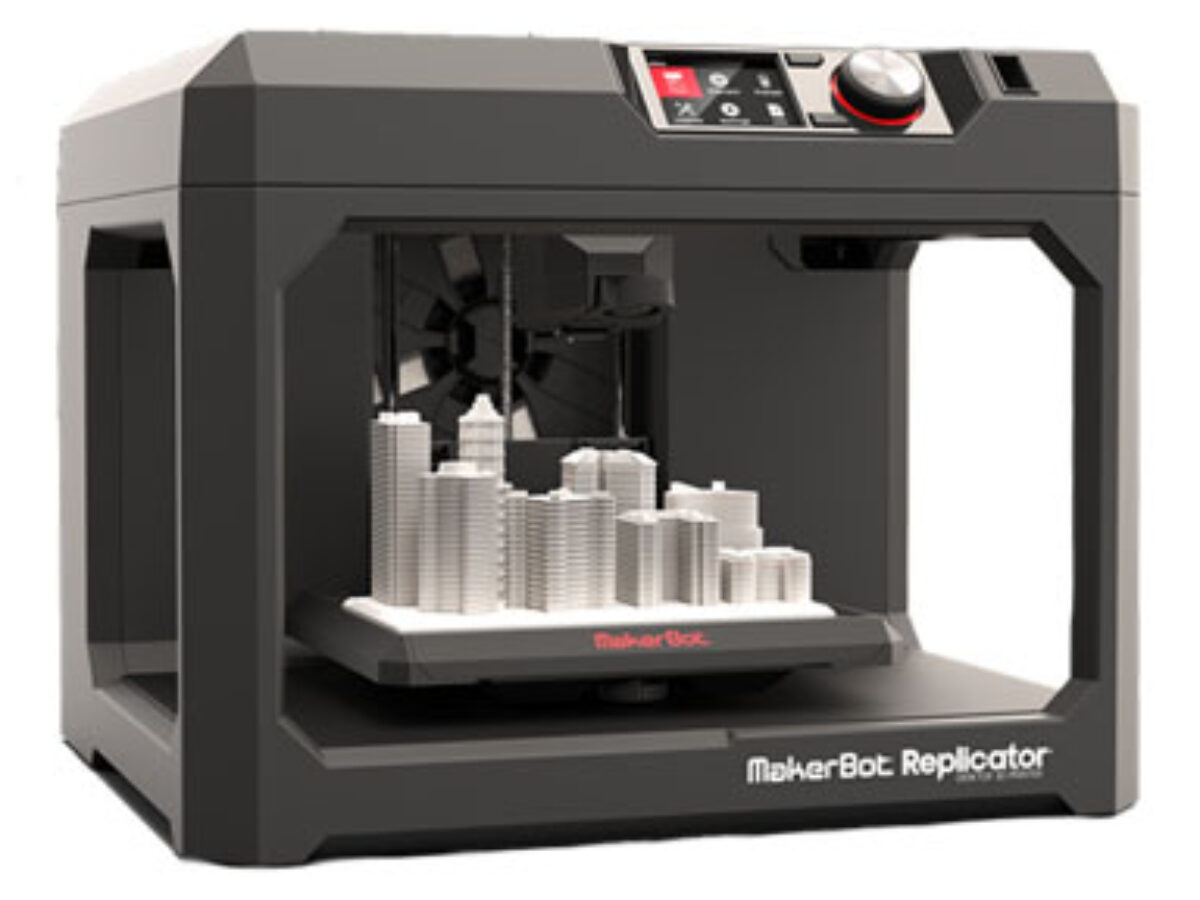Compare Comgrow T500 vs Replicator Plus
Comparison between the best 3D printers
Choose the best 3D printer at the best price. The cheapest 3D printers are here.
Buy a 3D printer here with 3D Fila.
 |
 |
|
| Model | Comgrow T500 |
Replicator Plus |
| Printing Material | Filament | Filament |
| Buy Filament for Sovol Comgrow T500 | Buy Filament forMakerbot Replicator Plus | |
| Estimated price | $799,00 | $2099,00 |
| Manufacturer | Sovol | Makerbot |
| Release Year | 2024 | 2016 |
| Print Volume [mm] | 500x500x500 | 165x295x195 |
| Printer Size [mm] | 817x810x962 | 410x528x441 |
| Weight [kg] | 39 | 18,3 |
| Power Loss Recovery | YES | YES |
| Enclosed printer | NO | NO |
| Bed Leveling | Automatic | Automatic |
| Filament End Sensor | YES | YES |
| Bed type | Heated | |
| Power supply system | Direct Drive | Bowden |
| Standard nozzle | 0,4 | 0,4 |
| Maximum Nozzle Temperature [°C] | 300 | 230 |
| Maximum Bed Temperature [°C] | 80 | |
| Maximum printing speed [mm/s] | 500 | 150 |
| Filament holder | YES | YES |
| Camera for supervision | NO | NO |
| Recommended filaments | PLA, PETG, Fibra de Carbono, TPU | PLA |
| Recommended slicers | Creality Print, Cura 5.0 ou superior, Prusa Slicer, Orca | MakerBot Print Software |
| Maximum Resolution [mm] | 0,1 | 0,1 |
| Processor | ||
| Display | 7'' IPS touchscreen, 60Hz | |
| Power Supply | 500 W | 110/220V / 240W |
| Connectivity | USB / Wi-Fi | |
| Operating systems | Windows, Mac, Linux | |
| Date of registration in the system | 2024-07-18 | 2022-11-15 |
| Release date | 2024 | 2016 |
| Extra features | The Sovol Comgrow T500 stands out for its large print volume of 500x500x500 mm, ideal for large-scale projects. It has a direct extruder with a gear ratio of 6.5:1, speeds of up to 200 mm/s, and high-performance motors. The 7" touchscreen with Klipper software makes navigation easy. The 49-point automatic leveling ensures a perfect first layer. It also has a full metal hotend at 300°C, linear rails on all axes, and WiFi connectivity. | The Replicator Plus printer is easy to use and has very good print quality. Its software is user-friendly and powerful, with USB, Ethernet, Wi-Fi and support for printing via pen drive. With a safe design for an open frame printer, it is relatively quiet. The Smart Extruder+ detects filament end and pauses printing automatically, in addition to notifying via apps. It has a large print volume, with a non-heated and coated print bed for easy removal of parts. It also has a webcam for remote monitoring of prints. |
| Support for multiple colors and materials (AMS and CFS) | NO | NO |
Notes * |
||
| Cost-benefit | 7 / 10 | 6 / 10 |
| Hardware | 3.6 / 10 | 2.5 / 10 |
| Tela | . | . |
| Print volume | 5 / 10 | 3 / 10 |
| Performance | 4 / 10 | 1 / 10 |
Conclusion |
| In comparing the Comgrow T500 and the Makerbot Replicator Plus, it's clear that both printers offer distinct advantages, catering to different user needs. The Comgrow T500 stands out prominently due to its superior print volume, allowing for larger projects, which can be particularly beneficial for users focused on extensive builds or intricate designs. Its advanced features, such as a higher maximum nozzle temperature and impressive printing speed, make it a strong contender for those who prioritize performance and flexibility in material use. On the other hand, the Makerbot Replicator Plus offers an established track record with a focus on user-friendliness and print quality. Its well-integrated software environment and support for various connectivity options provide a seamless experience for beginners or those who value simplicity in operation. However, its smaller build volume may limit the scope of projects, making it less ideal for large-scale applications. Pricewise, the Comgrow T500 provides a more cost-effective entry point—especially considering its performance and features—while the Replicator Plus positions itself at a premium, potentially justified by its software reliability and user-centric design. Overall, for users seeking larger build capacities and high-speed printing with advanced capabilities, the Comgrow T500 is the better choice. Conversely, for those who prioritize an easy-to-use interface and proven reliability in smaller projects, the Makerbot Replicator Plus remains a solid option. Ultimately, the best choice hinges on specific user requirements and budget constraints. |

